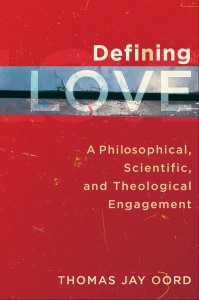What is Love? Baby, Don’t Confuse Me… No More!
I think about love nearly every day. As a love scholar and professor, I talk about love so much some students call me “Dr. Love.”
But when Valentine’s Day arrives each year, I can get annoyed. The language of love I hear can be confusing!
Sex and Romance

Greeting card for Valentine’s day in the style of comics.
I hear the word “love” used in one of two ways on Valentine’s Day. Sometimes the word refers simply to romance and sex.
A red heart is the symbol for this love language, and they’re synonymous with flirting, romance, and sex. “I heart you,” says the card delivered to that special someone.
If we think carefully, however, we realize that sex and romance are not always healthy. Such activity can be self-centered, exploitive, abusive, or creepy. Sex and romance aren’t always expressed in ways that promote well-being. Perverts lust, they don’t love.
Altruism and Agape
The second way I hear people use love language on Valentine’s reacts against the first. “Love isn’t about sex and romance,” say some, “it’s about altruism and helpfulness.”
To love is to help the needy, show compassion to sufferers, or make friends of enemies. Some Christians use the word “agape” to describe such love, because agape is one word in the Bible translated “love.”
When “love” describes actions that help those in great need, the word seems largely unsuitable for Valentine’s Day. This love language tells us little about attraction, mutuality, or delight.
When my wife and I celebrate a Valentine’s Day dinner, we’re not engaging in compassion for someone in need. My wife is neither a victim nor an enemy. Love is more than altruism or agape.
Love and Well-Being
The most helpful way to talk about love is to say it promotes overall well-being.
Philosophers and religious people use various synonyms for “well-being.” They speak of blessedness, flourishing, abundant life, wholeness, genuine happiness, shalom, or the good life.
Love sometimes involves promoting good in our physical, mental, social, environmental, and spiritual dimension of life. And it sometimes involves promoting good in romantic and sexual dimensions.
To promote overall well-being is act with the greater good in mind, not just an individual’s pleasures.
Love on Valentine’s Day
If love promotes overall well-being, we can rightly talk about romance and sex on Valentine’s Day as potentially loving. Romantic or sexual actions are loving if we do them intending to promote well-being.
If we send cards, flowers, or gifts with only our own happiness in mind, we aren’t loving. If we act with only our own pleasure in mind, we should not call our actions love.
The well-being of the two in relationship is especially at stake on Valentine’s Day. But even the two must consider how their actions affect the wider society.
On this Valentine’s Day, I encourage you to send cards, flowers, gifts or whatever. Flash a heart sign, if you feel like it. Splash “I Love You” across the sky, if you’re really feeling wild.
But remember that love ultimately wants what good, healthy, and beneficial. Remember this when romantic flames burn brightly, faintly, or not at all.
When goodness is the goal, the language of love on Valentine’s Day becomes less confusing… baby.
Thomas Jay Oord


Comments